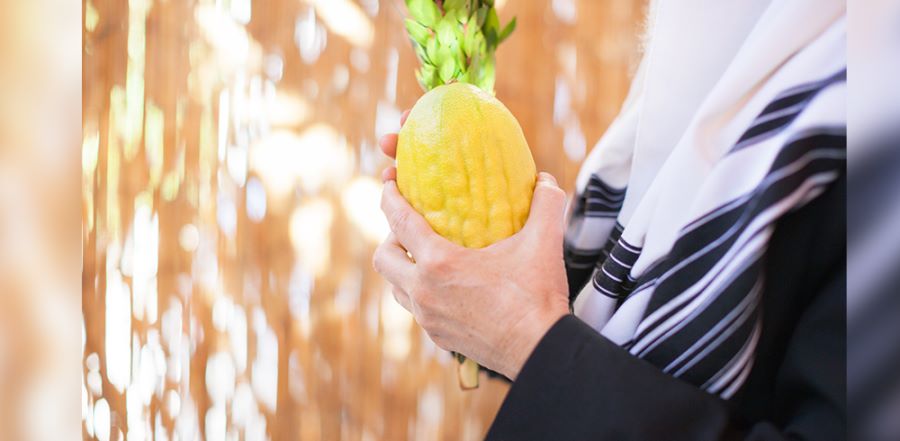Lessons from the Hut: Understanding Feast of Tabernacles
Lessons from the Hut: Understanding Feast of Tabernacles – Link to Original Article in AG News
What relevance, if any, does the Feast of Tabernacles have for Pentecostal Christians today? Is it still important, and does it speak into the lives of God’s people?
The biblical feasts mentioned in the book of Leviticus, in Hebrew known as Moedim or appointed times, are a prophetic picture of God’s plan of redemption. The Feast of Tabernacles (Sukkot), also known as the Feast of Ingathering, is mentioned in both the Old and New Testaments (See Exodus 23:16, Leviticus 23:33-44, John 7:2-3, 37-39). It is a seven-day celebration in which the children of Israel lived in sukkot (booths), commemorating the 40 years of wilderness wanderings. It is also known as a harvest festival celebrating not only the physical harvest, but pointing to the great end-time ingathering of souls. Another name for it is “zeman simchatenu” (time of our rejoicing) because it is one of the most joyful celebrations found in Scripture.
One of the main ideas behind this Feast is God’s provision. The Book of Deuteronomy tells us that in 40 years of wilderness living, God provided for His people (Deuteronomy 8:3-4). He fed them supernaturally, giving them manna to eat and water to drink. Their clothes did not wear out, and their feet did not swell. Additionally, the Lord provided spiritual sustenance, giving them the Word of God and accompanied them on their journey. He provided them with His Shekinah, the glory of His manifest presence in the cloud by day and the fire by night (1 Corinthians 10:4). Because the Feast of Tabernacles is a yearly celebration, it serves as a constant reminder of God’s love and supernatural provision for His people.
Sukkot (tabernacles) are temporary structures inhabited for seven days and highlight the transient nature of the journey from Egypt to the Promised Land. They also speak to the transient nature of a Christian’s life in this world. Like Abraham, we understand that this world is not our home as we look forward to a heavenly city whose architect and builder is God (Hebrews 11:10). According to tradition, the sukkah or booth must have at least three sides, and the roof must be made of natural vegetation and partially open to the sky. Therefore, as the people of God lived in the sukkah, they could gaze into the heavens reflecting on God who loved and sheltered them while on their way to the Promised Land. Followers in Jesus, too, can rest in Messiah’s provision in looking toward an eternal home (Matthew 6:25-34).
The Feast of Tabernacles also speaks about the Holy Spirit. In John 7, on the last day of the festival (Hoshana Rabbah), Jesus stood up and proclaimed, “Let anyone who is thirsty come to me and drink. Whoever believes in me, as Scripture has said, rivers of living water will flow from within them.” By this, he meant the Spirit, whom those who believed in Him later received (John 7:37-39).
According to ancient sources, for seven days, a priest carried water in a gold pitcher from the Pool of Siloam to the Temple. Each day the high priest poured the water at the base of the altar, symbolizing prayer for rain. It also pointed toward the outpouring of the Holy Spirit on the people of Israel. The rabbis associated this custom with Isaiah 12:3, “With joy shall you draw water from the wells of salvation.” As Pentecostals, we understand the importance and role of the Holy Spirit in bringing in the harvest and living a life filled with victory and joy. The Feast of Tabernacles highlights the importance of the Holy Spirit in the life of a Christian.
Rabbinic tradition also states that the sacrifice of 70 bulls on Sukkot represents all the nations of the world. What can be made of this? God is concerned for all people, nations, skin colors, and ethnicities. He loves and cares for every Jewish and Gentile person. Could you imagine if all people grasped that message? God has built into the Feast of Tabernacles the ingathering of the nations. The many sacrifices reveal His desire to bring atonement for both Jew and Gentile and to heal the wounds of heart, mind, and spirit of all people. God was not shortsighted in the breadth and scope of His redemption. God is benevolent to all of His creation, graciously providing the Messiah Jesus to save all who put their trust in Him.



Leave A Comment